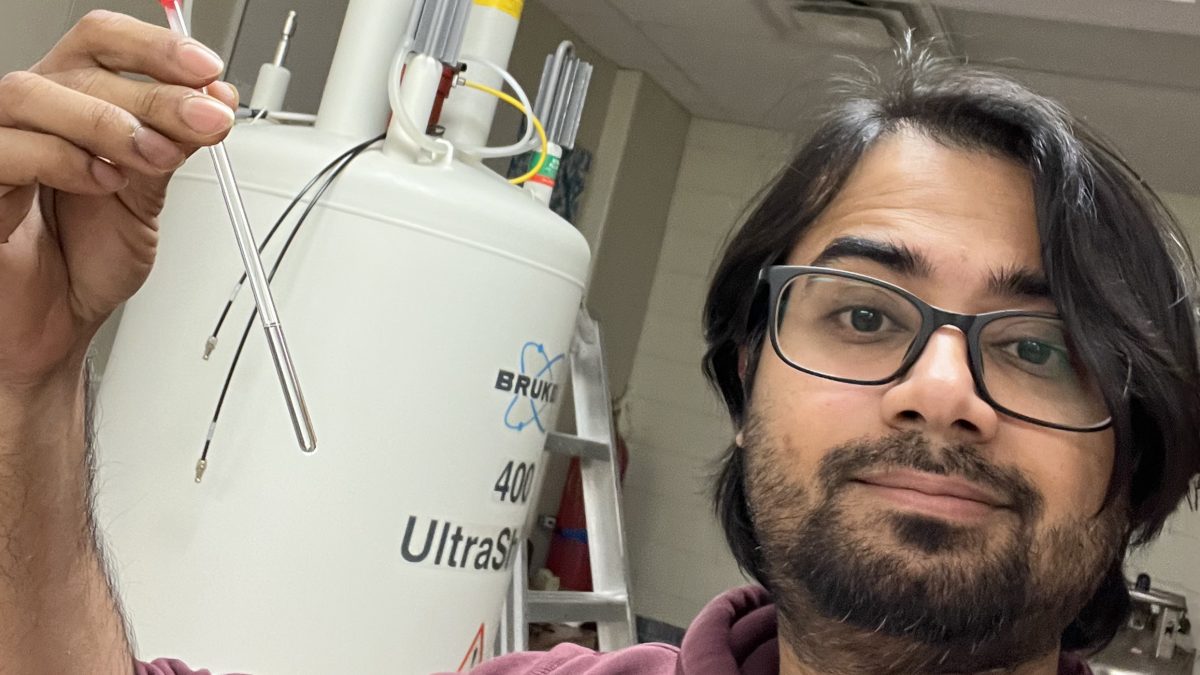A Brandon University (BU) scientist researching new methods to boost hydrogen as a viable clean alternative energy source will receive federal funding support over the next five years.
Dr. Shrinwantu Pal, of BU’s Department of Chemistry, is the recipient of a Natural Sciences and Engineering Research Council of Canada (NSERC) Discovery Grant, valued at $25,000 per year. He will also receive a $12,500, one-year Discovery Launch Supplement as an early career researcher, bringing the total value of his awards to $137,500.
Dr. Pal envisions using hydrogen (H2) to help meet growing global energy demands. Bypassing current infrastructures that demand pressurized H2 gas, Dr. Pal is developing safe and efficient protocols that employ liquid organic hydrogen carriers (LOHCs), which are liquid compounds that can store and release hydrogen. His research focuses on developing catalysts that will allow LOHCs to produce and store hydrogen at a scale necessary for useful energy production.
“Since the 1940s, we have been using hydrogen fuel cells, which operate using pressurized H2, to convert hydrogen and water into energy with zero carbon emissions, but these fuel cells can be unsafe and the technical challenges they present limit mobility and potential uses,” Dr. Pal says. “LOHCs present a promising alternative to hydrogen fuel cells, but they have been underutilized due to the lack of catalysts that will allow us to absorb and later release this hydrogen. This work will help us develop catalysts that will contribute to a clean, safe. and efficient alternative to fossil fuels.”
Liquid organic hydrogen carriers have been identified by the United States Department of Energy as a promising class of candidates in bidirectional hydrogen energy production and storage.
“We all know that reducing carbon emissions and climate change are among the biggest issues that we face today,” says Dr. Bernadette Ardelli, BU’s Vice-President of Research and Graduate Studies. “As we look for practical ways to pivot away from fossil fuels, Dr. Pal’s research is enormously vital for our future. I’m excited to have such globally important research taking place right here at BU and encouraged that our outstanding faculty is on the case.”
One-year Discovery Grant extensions, due to the COVID-19 pandemic, have also been offered for five BU projects. Dr. Eric Bushnell ($25,000) of the Department of Chemistry, Dr. Alexander Koiter ($25,000) and Dr. Peter Whittington ($25,000) of the Department of Geography and Environment, and Dr. Chenkuan Li ($15,000) and Dr. Rory Lucyshyn-Wright ($24,000) of the Department of Mathematics and Computer Science will receive extensions to continue their ongoing projects.
“The work of our researchers leads to discoveries that directly benefit us, both locally and internationally,” says Dr. Christophe LeMoine, acting Dean of Science at BU. “In addition to the knowledge we gain from these projects our Discovery Grant holders also provide outstanding opportunities for students to work on their labs and learn from leaders in their field. They develop valuable skills that are in high demand in both academic and industry fields. It’s win-win for everyone involved.”
Contact
- Brandon University
- communications@brandonu.ca
To receive any BU publication in an alternate format please contact Communications@BrandonU.ca
About BU
Success is built at Brandon University. Our growing, progressive campus welcomes a diverse and inclusive community that combines proud tradition with shared ambition. Through our excellence in teaching, research, and scholarship, we educate students to make a meaningful difference as engaged citizens and leaders. Join us at BrandonU.ca.
